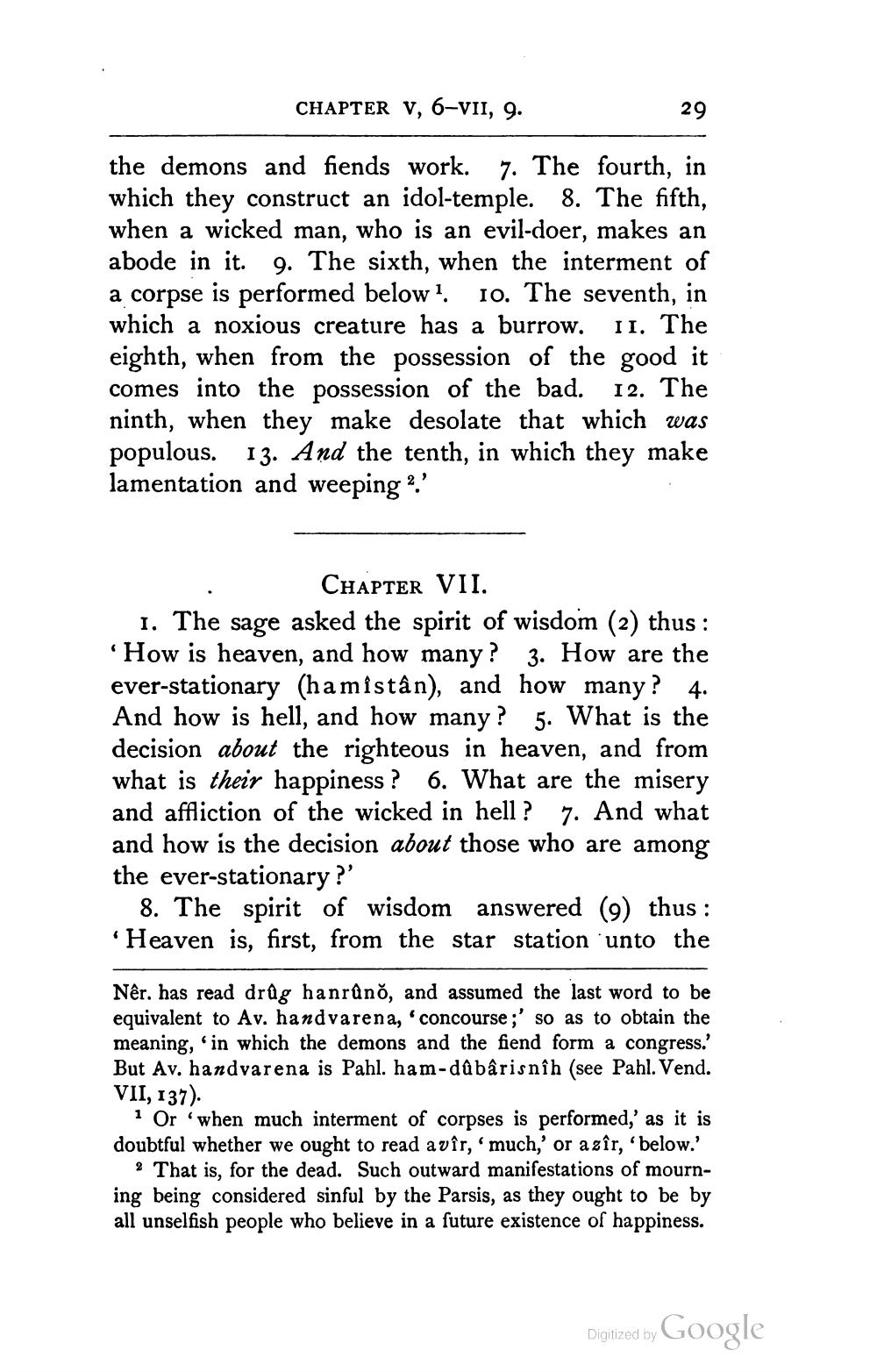________________
CHAPTER V, 6-VII, 9.
the demons and fiends work. 7. The fourth, in which they construct an idol-temple. 8. The fifth, when a wicked man, who is an evil-doer, makes an abode in it. 9. The sixth, when the interment of a corpse is performed belowl. 10. The seventh, in which a noxious creature has a burrow. 11. The eighth, when from the possession of the good it comes into the possession of the bad. 12. The ninth, when they make desolate that which was populous. 13. And the tenth, in which they make lamentation and weeping ?'
CHAPTER VII. 1. The sage asked the spirit of wisdom (2) thus : *How is heaven, and how many? 3. How are the ever-stationary (hamistân), and how many? 4. And how is hell, and how many ? 5. What is the decision about the righteous in heaven, and from what is their happiness ? 6. What are the misery and affliction of the wicked in hell ? 7. And what and how is the decision about those who are among the ever-stationary ?'
8. The spirit of wisdom answered (9) thus : "Heaven is, first, from the star station unto the
Nêr, has read drûg hanrûno, and assumed the last word to be equivalent to Av. handvarena, concourse;' so as to obtain the meaning, in which the demons and the fiend form a congress.' But Av. handvarena is Pahl. ham-da bârisnih (see Pahl. Vend. VII, 137).
1 Or when much interment of corpses is performed,' as it is doubtful whether we ought to read avîr, much,' or azîr, 'below.'
? That is, for the dead. Such outward manifestations of mourning being considered sinful by the Parsis, as they ought to be by all unselfish people who believe in a future existence of happiness.
Digitized by Google




